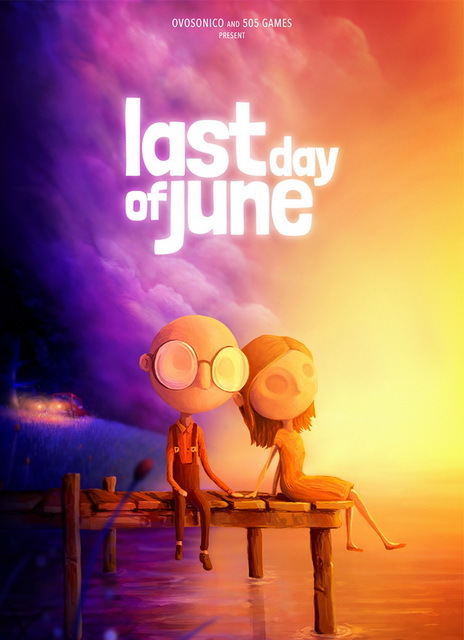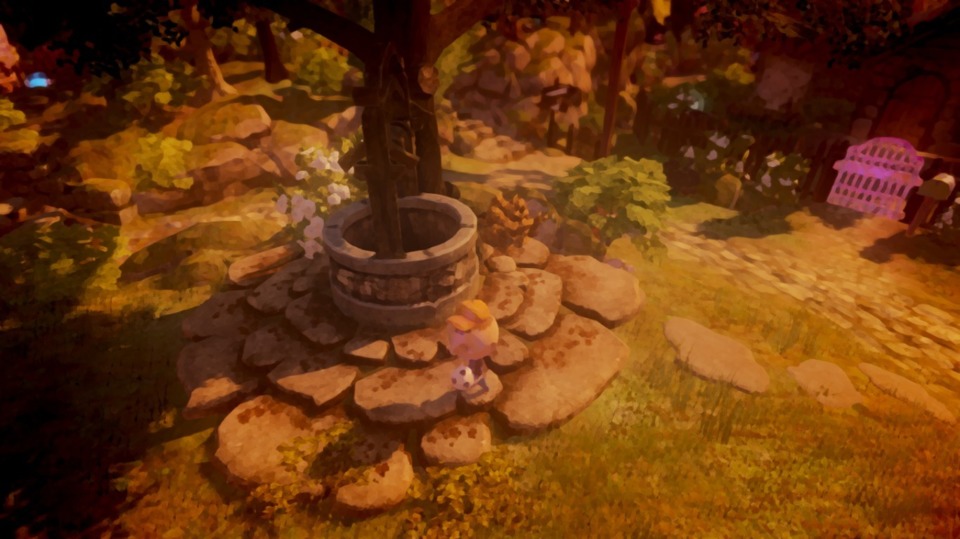Indie Game of the Week 84: Last Day of June
By Mento 0 Comments

It's been a while, so it's time for another feelings game. Last Day of June is that sort of adventure game that's geared towards spinning a narrative first and foremost with puzzles and other more traditional forms of video game conflict taking secondary roles. You're familiar with this type: Gone Home, Firewatch, Dear Esther - the sort of game that's been pejoratively called a "walking simulator" in the past, though that doesn't quite cover the spectrum of interactivity these games may exhibit (as an example, Dear Esther has hardly anything for the player to do besides stroll determinedly, while Last Day of June does still have simple puzzles scattered throughout). Personally, because they rely so much on a strong mise-en-scène to establish themes, vibes, and plot details that aren't spoken out loud in addition to the player's central role as an observer, I'm inclined to call these games "Me's In Scene". Or maybe not. It's remarkable how effective a pun stops being when you see it in print.
The story of Last Day of June - which has a clever double-meaning title in retrospect - concerns the happily married couple Carl and June. On Carl's birthday, June decides that they should have a picnic on a quiet pier that has sentimental value to them both, but a sudden thunderstorm forces them to drive back home. Along the way, Carl swerves to avoid something in the road. June dies in the subsequent crash, and Carl is paralyzed from the waist down. So far, so cheerful; however, some odd unusual miracle has allowed a morose Carl to revisit the hour before the crash in the bodies of four of their neighbors: a bored kid with no playmates; a lonely woman who pined for Carl in her youth and is preparing to move away for a fresh start; a trigger-happy aristocratic hunter with a cartoonish enmity for a kleptomaniac bird; and a kind old man who takes care of the local flowers. Once it's revealed that the kid was the one who caused Carl to suddenly swerve, he searches to find an alternative outcome, one where the kid's not playing near the road but instead flying a kite elsewhere with the old man. Naturally, something else then causes the crash, and the game proceeds from there.

The game's themes eventually move from love and loss to the inevitability of fate. No matter what Carl does, something always causes the car to crash and his wife to die. Though you frequently change the destinies of the neighbors, yours remains the same. I won't get into too much detail about how Last Day of June ends because the story is definitely the selling point, but the game leans on its impressionist visual style and oddly vacant looking characters (they have no eyes or mouths, but it's not quite as disquieting as I make it sound) to create a gloomy tale that never looks too gloomy. Instead, it feels more like these characters aren't so much real people but Carl's vivid memories of them - you return in time to play as them, but it could well be that Carl's imagining the whole thing and replaying the same day in his mind to torture himself about what he could've done differently. I played The Sexy Brutale last year which was another Indie game with a similar look and Groundhog Day premise, and would also eventually settle on the same themes of regret, repetition and redemption. Though your actions may prevent one catastrophe, who's to say that another won't follow in its stead? Could you ever have an effect on the past at all? Should you? As with a handful of narrative-focused adventure games from a foreign language developer, the game lacks dialogue of any kind save a few crucial UI verbs when hovering over a hotspot, and when combined with how faceless characters can't emote it means the subtext has to do a lot of the heavy lifting. It's impressive that it's as easy to follow, without necessarily sacrificing the dramatic complexity of the choices and consequences it offers.
Unfortunately, I had a heck of a time getting this to run at a reasonable speed. It lacks any kind of optimization tool beyond turning VSync on or off and the bloom and saturation are both crazy high, which is especially odd given the dour material. It has fully 3D environments with analog movement, something a laptop with integrated graphics like mine can't handle too well, and the load times seemed incredibly long given how small the game world actually is. It could just be that the developers used what tools they had and ran into problems they couldn't overcome in keeping the game manageably streamlined for lesser systems - something that would benefit an understated mood piece like this, which honestly shouldn't be demanding high specs - so I can't fault them too much. It does create that tricky issue as a reviewer where I cannot verify that the game's technical failings are due to their shortcomings or my own, so I'll just leave it at "caveat emptor". It's always available on Switch and PS4 too, if you're in a similar PC boat as myself.
Last Day of June has an affecting story if saving loved ones through time travel is your thing - The Sexy Brutale and Life is Strange being two other birds of a temporal feather, and for that matter To The Moon offers a similar discourse on "the path not chosen" - and its few time puzzles will have you cleverly reconsidering your past actions. For instance, switching the kid from playing with a ball (which ends up on the road and causing the accident) to playing with a kite needs to be reversed for the next character, who needs that kite's rope to avoid the next road calamity. There's also a smattering of collectibles - you sort of need to hop between the available characters to reach them all, as a few have unique abilities for opening pathways - which provide backstories for those neighbors. Ultimately, however, it's a short and bittersweet tale that doesn't demand too much ratiocination on the part of the player, and worth checking out if - like me - you're interested in video games that endeavor to explore the medium's potential for storytelling.
Rating: 4 out of 5.
| < Back to 83: Volgarr the Viking | > Forward to 85: World to the West |
